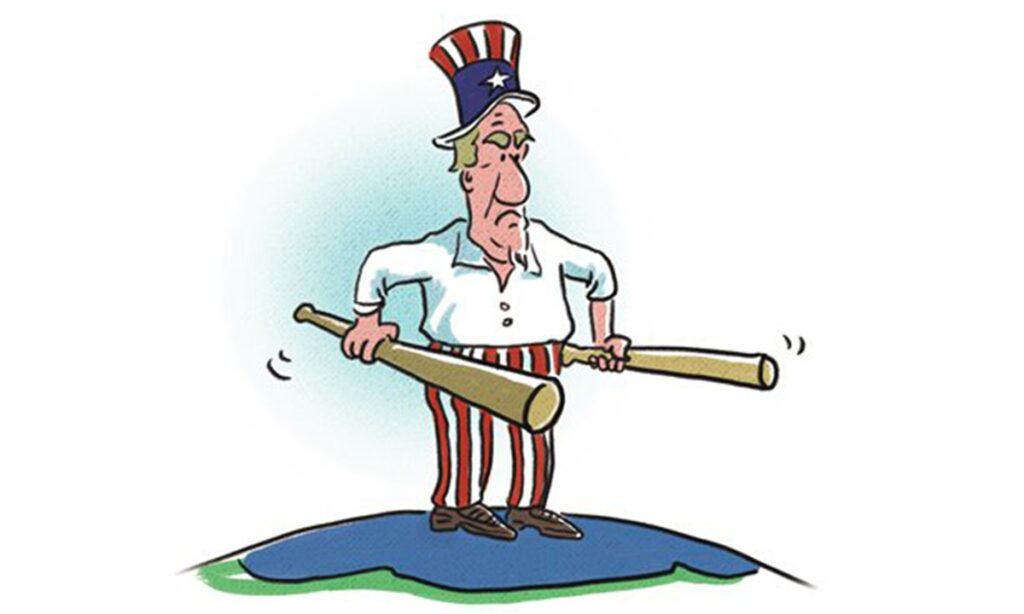By Yu Ning
Can the US give up promoting democracy through military intervention or by attempting to overthrow “authoritarian regimes” by force? For quite a long time, the US, which believes it has a mission to disseminate democracy worldwide, has taken military intervention as one of major means to impose Western-style democracy on others. From Iraq to Kosovo, Libya to Syria, Washington waved the stick of military intervention under the excuse and disguise of democracy and freedom. Miserably, as a result, those countries were left in endless turbulence, economic woes and deteriorating livelihoods. The US was also mired in a quagmire of wars.
In his first major foreign policy speech delivered Wednesday, Antony Blinken, US secretary of state, has sought to draw a line under a history of “costly military interventions” and policies aimed at regime change in other countries. He said past US military interventions had given “democracy promotion” a bad name and lost the confidence of the American people. The US should renew democracy at home and seek to lead the world by the power of example, he emphasized. It’s worth noting Blinken supported the US’ catastrophic and murderous military intervention on Iraq based on lies in 2003. He said the US rightly sought to avoid another Iraq by not doing too much in Syria, but “made the opposite error” of doing too little.
The US pledge to abandon military interventions is only a temporary policy adjustment made by a country that is trapped in internal as well as external difficulties, and it doesn’t mean a fundamental change, Zhang Tengjun, an assistant research fellow at the China Institute of International Studies, told the Global Times. It’s a pragmatic decision based on calculation of costs and gains of military interventions, the expert said.
Although the Biden administration has rhetorically placed strengthening democracy abroad at the center of its foreign policy, the costs for the US to promote democracy in other countries through military interventions greatly outweigh the benefits.
The US has had a bad record in militarily interference in other countries with promoting democracy used as a pretext. The Biden administration said no to this previous conventional practice not because it thinks the method is wrong. For the Biden administration, which is facing daunting challenges to steer the US out of a deep predicament with a raging epidemic, pervasive economic anxiety, serious social divisions and political polarization, military intervention against others cannot bring the US the desired results. Instead, it will plunge the country into countless military expenditures and endless wars.
What Washington needs more right now is to focus on domestic challenges, make a strategic contraction and reduce unnecessary expenditures as much as possible. But this doesn’t mean the US will totally abandon military intervention. The US hegemonic nature remains unchanged. Washington still considers itself the mentor of world democracy. In the future, if the US economy recovers and the overall situation of the country improves significantly, it will consider military intervention as an effective means again.
The Biden administration is driving changes on many policies to ditch the Donald Trump-styled “America First.” But Biden’s policies have also prioritized “America First.” He pushed for the Buy America campaign. Although he reemphasized the value of alliance, his aim is to restore US leadership and unite allies against China for the sake of maintaining US hegemony.
The US is used to seeking interests through military interventions under the disguise of democracy, whether it drops military intervention or not, the country is only changing ways to realize its own interests. Do not expect the US to abandon its hegemonic habit of interfering in other countries’ affairs.
Global Times


